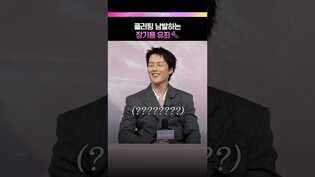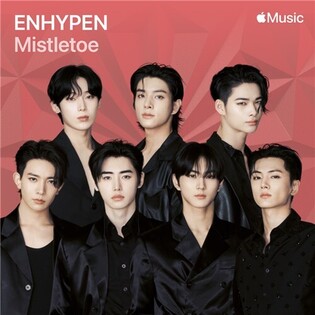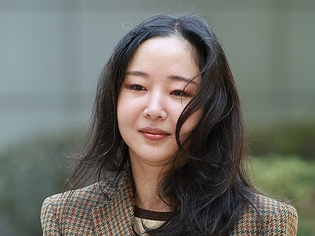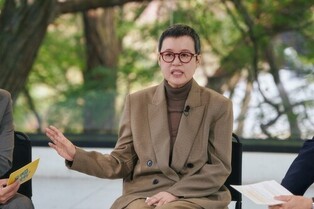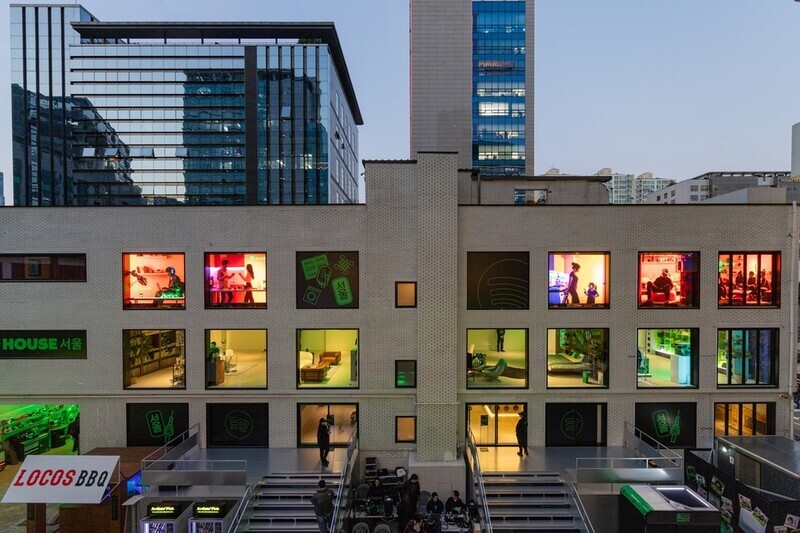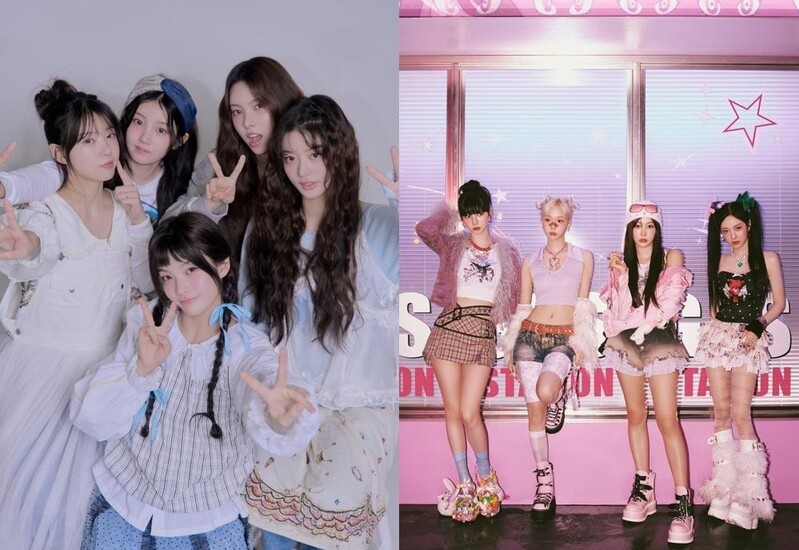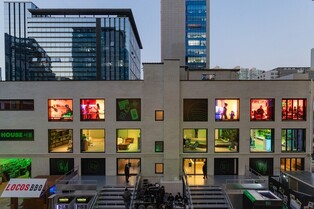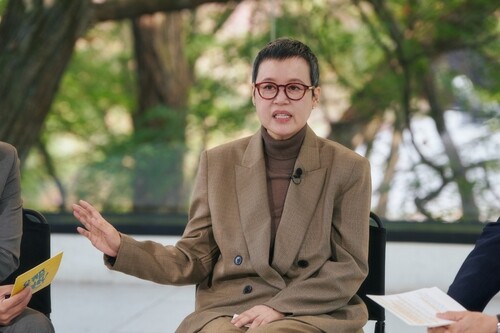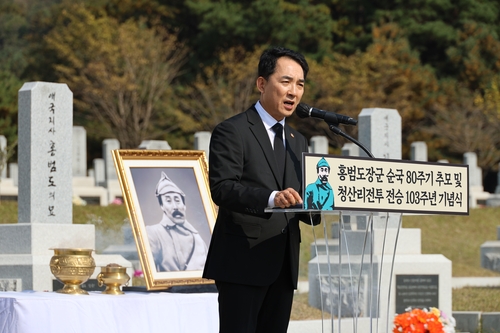 |
| ▲ Patriots and Veterans Affairs Minister Park Min-shik speaks during a remembrance ceremony commemorating the 80th anniversary of the death of independence fighter Hong Beom-do held at Daejeon National Cemetery in Daejeon, 139 kilometers south of Seoul, on Oct. 25, 2023. (Yonhap) |
independence fighter-ceremony
Veterans minister honors independence fighter at center of ideological dispute
By Kim Eun-jung
SEOUL, Oct. 25 (Yonhap) -- South Korea' veterans minister praised independence fighter Hong Beom-do on Wednesday for his accomplishments amid an ongoing ideological dispute over his ties to Soviet communist forces.
Hong became the subject of the ideological dispute after the defense ministry said in August it was considering relocating his busts from its headquarters and the Korea Military Academy, both in Seoul, citing his past record of collaborating with Soviet forces.
The opposition Democratic Party and advocates for independence fighters are strongly protesting against the push for the relocation.
"The general who bravely fought for the homeland did not live to see the liberation ... but his path became the path of many patriotic youth, which eventually helped us to achieve liberation in 1945," Patriots and Veterans Affairs Minister Park Min-shik said in a ceremony marking the 80th anniversary of Hong's death at Daejeon National Cemetery in Daejeon, 139 kilometers south of Seoul, where his body is buried.
Park praised Hong for spearheading historic victories in battles at Fengwudong and Qingshanli in 1920. Hong led Korean independence forces in the major battles in Manchuria in 1920 and moved to the Soviet Union the following year to seek refuge from Japan's forces.
He was forced to relocate to current-day Kazakhstan in 1937 under then Soviet leader Joseph Stalin's policy, along with many other ethnic Koreans. He died in the Kazakh region of Kyzylorda in 1943, two years before Korea's liberation from Japan's 1910-45 colonial rule.
In 2021, his remains were repatriated to South Korea and buried in the current location.
(END)
(C) Yonhap News Agency. All Rights Reserved

















